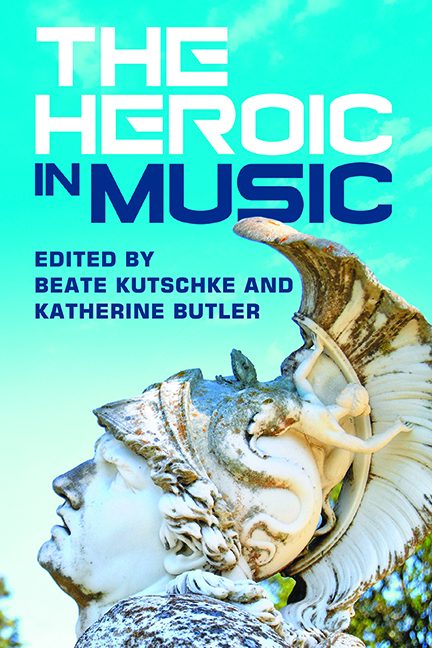Book contents
- Frontmatter
- Contents
- List of Illustrations
- Notes on Contributors
- Introduction
- Part I The Configuration of Heroic Music as a Tool for Shaping Moral and Political Identity
- Part II Music, its Ethics and Politics – Beyond ‘Beethoven Hero’
- Part III Heroic Music and its Moralities in Dictatorships and Post-Heroic Democracies
- Bibliography
- Index
3 - Virtù eroica: Heroic Music, Social Norms, and Musical Reflections in Seventeenth- and Eighteenth-Century Italy
Published online by Cambridge University Press: 16 July 2022
- Frontmatter
- Contents
- List of Illustrations
- Notes on Contributors
- Introduction
- Part I The Configuration of Heroic Music as a Tool for Shaping Moral and Political Identity
- Part II Music, its Ethics and Politics – Beyond ‘Beethoven Hero’
- Part III Heroic Music and its Moralities in Dictatorships and Post-Heroic Democracies
- Bibliography
- Index
Summary
In the seventeenth and eighteenth centuries, virtù eroica was an established category in Italian ethics. Deriving from Aristotle's Nicomachean Ethics, it was, however, not a clearly defined and common concept. In this article I will investigate if and how virtù eroica, the highest virtue man could achieve out of a spectrum of diverse virtues (but only one facet of the broad field of heroism), is reflected in musical works. Therefore, I will begin with a reconstruction of the meaning of virtù eroica as it manifests itself mainly, but not exclusively, in two ethical works: Emanuele Tesauro's and Ludovico Antonio Muratori's Filosofia morale. Due to their use as school literature in Italian Collegi dei nobili, the Italian schools of the nobility mainly run by the Jesuit order, Tesauro's and Muratori's books were most likely widely known in society. The former was published in 1670 and reprinted several times until 1729, whereas the latter came out in 1735 and was republished as late as 1827. In addition, I will investigate heroism in literature that had a certain affinity to opera and cantata, i.e. the so-called Epistole eroiche. The discussion of heroism in the cantata and Venetian as well as Metastasian opera will lead us to musical reflections of heroism in the seventeenth and the beginning of the eighteenth century. To document the change of the ethical and musical concept of heroism in this period, three moments will be considered more in detail: c.1650, c.1680, and c.1725.
Virtù eroica
As already mentioned, Emanuele Tesauro's Filosofia morale was widely used in the Italian schools of the nobility and, thus, was in fact conceived as a schoolwork: scholars assume that Tesauro wrote his book during his employment as an instructor for the Savoy princes in Turin. It is therefore an outcome and an example of princely instruction in the seventeenth century. The norms and ideals it advertises clearly reflect the ones virulent and accepted in contemporary aristocratic society. Due to its being part of noble education, it can be assumed that the principles exposed had considerable impact on noble pupils, i.e. the main social class sponsoring the arts, inter alia poetry and music.
- Type
- Chapter
- Information
- The Heroic in Music , pp. 50 - 68Publisher: Boydell & BrewerPrint publication year: 2022
- 1
- Cited by

